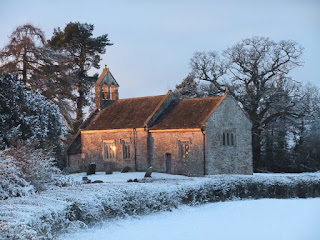'Significant and comprehensive': on the versicles and responses after the second Lord's Prayer at Matins and Evensong
Continuing with extracts from John Shepherd's A Critical and Practical Elucidation of the Morning and Evening Prayer of the Church of England (1796), we consider the versicles and responses after the second Lord's Prayer at Matins and Evensong. Shepherd begins by identifying the source of these versicles and responses:
From the recital of the Lord's Prayer we proceed to the interlocutory petitions, all of which except two are taken out of the psalms.
These versicles, in other words, root the Church's daily prayer in the Psalter. In doing so, they also illuminate other characteristics of the Church's prayer, for - as Shepherd notes - they provide a summary of the Sunday and daily collects:
Whether it be entirely the effect of design, or something must be attributed to accident, these versicles are an epitome of the collects that regularly follow. The duty of the congregation is to join in the one, and to listen with attention to the other.
Shepherd then proceeds to demonstrate how the versicles and responses, taken from the Psalter and the scriptures of Israel, cohere with the subsequent collects:
The two first, from Ps.LXXXV.7, containing general petitions for mercy and salvation, answer to the Sunday and weekly collects. Mercy and preservation from evil, temporal, or eternal, both of which are included in the term salvation, are most commonly the subjects of these Collects. The two next, taken
from Ps.xx, answer to the prayers for the King's Majesty and the Royal Family. The two following from Ps.cxxxII.9, appear to have been part of the Jewish Liturgy, and were used by Solomon at the dedication of the temple. These with the two succeeding versicles, from Ps.xxvi.9, answer to the Collect for the clergy and people. The two next, taken probably from 1 Chron. XXII.9, and Ps. CVIII.12, answer to the daily morning and evening collects for peace; and the two last from Ps.LI, to the daily collects for grace.
In other words, these versicles and responses are, day by day at Matins and Evensong, a school for prayer, guiding us in how we might pray for the Church and the world. As Shepherd notes:
These sentences are so significant and comprehensive, that it would not be an easy task to make a more judicious selection.
What is more, in being derived from the Psalter and Israel's scriptures, these petitions are also a daily reminder that, in and through Christ, we Gentiles "wert grafted contrary to nature into a good olive tree"; that we "are no more strangers and foreigners, but fellowcitizens with the saints, and of the household of God".
We might also consider how the singing of these versicles and responses at Choral Matins and Choral Evensong provides an opportunity to contemplatively enter into these prayers, to indwell them in heart and mind, reflecting on how this school of prayer might find expression in our own requests and petitions.
One final note: it is precisely the unchanging nature of these versicles and responses that allows them to be a school of prayer for us, shaping us day by day, inviting us into deeper contemplation. This is a gift to be cherished, in stark contrast to the fashion in much contemporary Anglican daily office provision of providing varying texts, or omitting such versicles and responses entirely.




Comments
Post a Comment